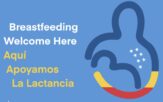Breastfeed Durham was one of the community partners in the Data Equity Coalition Project. The main purpose of this project is to influence the national dialogue on racism and health, centering the concerns of Durham’s communities of color, low income, and historical disinvestment.
DataWorks NC is one of 5 organizations in the United States participating in the Data Equity Coalition Project. DataWorks NC hosted three community conversations to discuss the intersection of racism and health and worked with community partners like Breastfeed Durham to identify meaningful questions about racism to include in two national CDC surveys: (1) Behavioral Risk Factor Surveillance System (BFRSS) and (2) Pregnancy Risk Assessment Monitoring System (PRAMS).
Key Takeaways from the Community Conversations:
- Structural Racism: Structural determinants of health should be centered instead of individual behaviors & risk factors.
- Government Accountability: Where do government funds dedicated toward health equity go? Resources should be dedicated to community, specifically organizers who are already doing the work.
- Chronic Stress: Racism results in chronic, consistent stress which contributes to racial health disparities.
- Access to Care: One way that structural racism manifests is through access to health care. This means differences in physical access (e.g. transportation), quality of care, and insurance coverage.
- Representation: People from marginalized communities are under-represented in research and public health data. More diversity in participants is needed across many identities and circumstances, including: race, ethnicity, income & wealth, gender identity, sexual orientation, language spoken, age, ability, rurality, and nativity.
- Words Matter: Most public health data and documentation is framed to focus on deficits instead of assets. Deficit-focused metrics and language are alienating, community input on language will make CDC reports and tools more inclusive.
View the report from the community conversations below:
